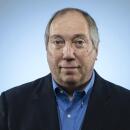Black Teen Talent Blooms in National Competition
- Share via
Forest Bates wore blue jeans, a tight shirt and Topsiders Saturday, like any of a thousand other inner-city youths who step out in Los Angeles each day. But when this 17-year-old took center stage in a Los Angeles theater and gracefully laid his body across the hardwood, his street clothes suddenly assumed the character of robes worthy of Hamlet.
For the next five minutes, the Washington High School senior and occasional playground basketball guard flawlessly performed Hamlet’s “To be or not to be” soliloquy, holding an audience of nearly 90 other teen-agers silent in respect. Only when they were certain that Bates had returned from Shakespeare to reality did anyone dare applaud.
“I love Shakespeare,” Bates said, as he bounded off the stage after acknowledging his applause. “I hear a lot of people say its boring.” But “for somebody who had just an 8th-grade education, (Shakespeare) did pretty good.”
Talent Showcase
At a time when the names of black youths are more likely to be found in news reports about violent crime, drug abuse and social problems such as teen-age pregnancy, according to NAACP leaders, the organization is showcasing the talents of youths such as Bates in a national competition known as the Afro-Academic, Cultural, Technological and Scientific Olympics--ACT-SO for short.
It began in 1977 as the brainchild of Chicago Tribune syndicated columnist Vernon Jarrett, and has spread to 120 American cities. Prizes of up to $1,000 are offered to black students in grades 9 through 12 who are talented in the humanities, performing arts, sciences and visual arts.
“We hear all the negative things about our children,” said Alan Lee, volunteer president of the Youth and College Division of the Los Angeles NAACP branch. So when success stories come along, as they often do, he said, “there are seldom any programs to focus attention on them.”
“We want there to be an awareness by black children that there is a forum, a means to be recognized” for doing good as well as bad, Lee said. While black youths have traditionally tried to achieve that recognition mostly through athletics, he noted, “There are very few O. J. Simpsons out there.”
Trip to Baltimore
The Los Angeles competition, one of eight throughout the Southland this spring, took place in the tiny Hearst Theatre at the California Museum of Science and Industry. At an awards ceremony on June 14, winners will be announced in various categories of drama, music or oratory, then given free trips to the national finals in Baltimore on June 29.
One of the drama judges was television actress Marla Gibbs, who operates her own local acting academy for youth. “We’ve taken kids out of school gangs and turned their lives around,” Gibbs said. “Being around winners makes you see what you can do.”
Acting can help students understand themselves and their surroundings, she said. And sometimes it can lead to a career: “A couple of these (young performers) have professional ability,” she said, motioning toward the stage.
Bates was among more than a dozen students who gave dramatic recitations.
‘Lines Are Just There’
The intricately-woven literature has never really stumped him, Bates said. Like magic, “the lines are just there. It’s like I’m speaking to you.” Then, too, the ups and downs of his own daily experiences help him grasp the subtle meanings. “I can see where Hamlet was coming from; although I’m not that far off, I’m not gonna’ kill myself.”
Seventeen-year-old Bryan Wilhite came from Inglewood to perform his comical version of how Shakespeare might sound if given a street-slang translation. Dressed in black tights and a white shirt open down his chest, Wilhite worked the audience like a stand-up comic.
“I started off as the class clown,” Wilhite said later. “Instead of getting thrown out of elementary school classrooms, I learned to keep it to myself.”
Wilhite also won the ACT-SO poetry competition last year, but has no dream of acting professionally. When he attends the University of California, Santa Barbara, next year, he plans to major in chemistry, he said.



